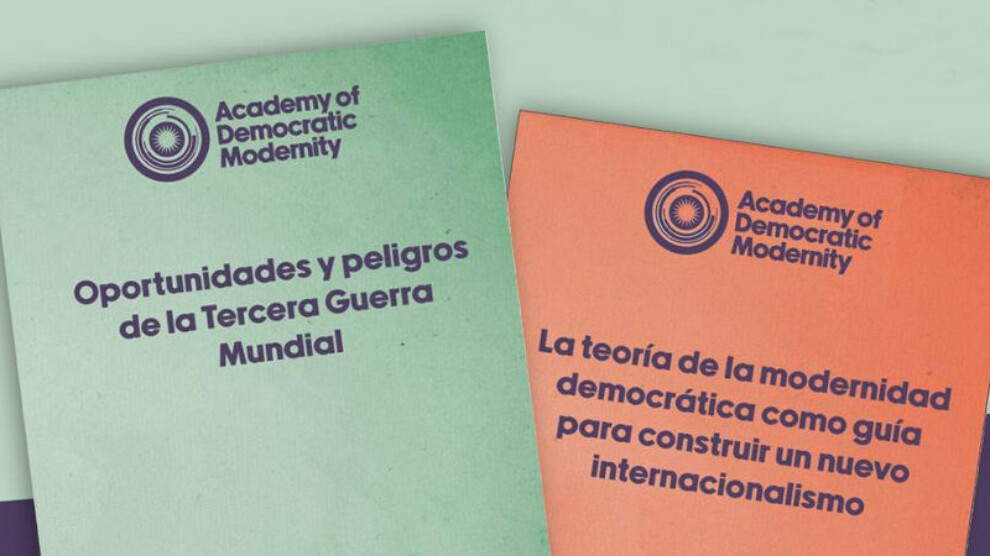Activists present books of the Academy of Democratic Modernity in Mexico
Presentation of the books "Opportunities and Dangers of the Third World War" and "The Theory of Democratic Modernity as a Guide for Building a New Internationalism" in Mexico.
Presentation of the books "Opportunities and Dangers of the Third World War" and "The Theory of Democratic Modernity as a Guide for Building a New Internationalism" in Mexico.

On 5 June, the virtual presentation of the books "Opportunities and Dangers of the Third World War" and "The Theory of Democratic Modernity as a Guide for Building a New Internationalism", both booklets produced by the Academy of Democratic Modernity, was held. The event, organized by the Tejiendo Luchas collective and the Colectivo Transdisciplinario de Investigaciones Críticas (COTRIC), aimed to generate theoretical and political links between indigenous and peasant struggles in Mexico and the liberation movement in Kurdistan.
Margara Millán, feminist sociologist and researcher at the National Autonomous University of Mexico (UNAM) and Carlos Beas, social fighter belonging to the Indigenous Peasant Union of the Northern Zone of the Isthmus of Tehuantepec, Oaxaca, underlined the relevance of reading these documents to inspire a global struggle against capitalism. They pointed out that the nation-state in the framework of the Third World War deepened a process of domination in a world in obvious transition, but the experience of the Kurdish people "speaks to us of a democracy that existed before and is now being redefined", as established through democratic confederalism.
Both commentators agreed with Kurdish leader Abdullah Öcalan's criticism of the lack of a democratic force of great magnitude to bring together all the struggles in the world. In this sense, the position of the democratic forces has to "give practical form" to a new global resistance based on critical internationalism. This new political form, the so-called world democratic confederalism, seeks to offer an alternative proposal to the dominant model, because if "the crisis is global, the solution must be global, not only in the planetary sense, but also in the sense that it must be integral", as pointed out by Margara Millán, taking into consideration the interconnection between the problems of each people.
Thus, the commentators of the presentation argued that democratic modernity gives rise to various processes of emancipation that are not limited to the framework of the nation-state. In short, both brochures insist on the construction of a plural society, whether ethnic, political or religious, in which the participation of women and young people is central. Carlos Beas emphasized that it is necessary to understand these books from each region, starting from the links between the struggles in a global key; that is, the integral vision of the current wars in the world and where the anti-capitalist struggle is inserted, as well as to think about democracy beyond the Eurocentric analyses, anchored in what is allowed by the domination system.
Both texts are concrete proposals to "build a series of alternatives", to open a necessary debate, from the critique and with the power to form structures beyond the bureaucratic, to sustain stronger platforms of struggle. This presentation continues a series of efforts to build bridges of collaboration and recognition between different struggles globally, from Kurdistan to Abya Yala.